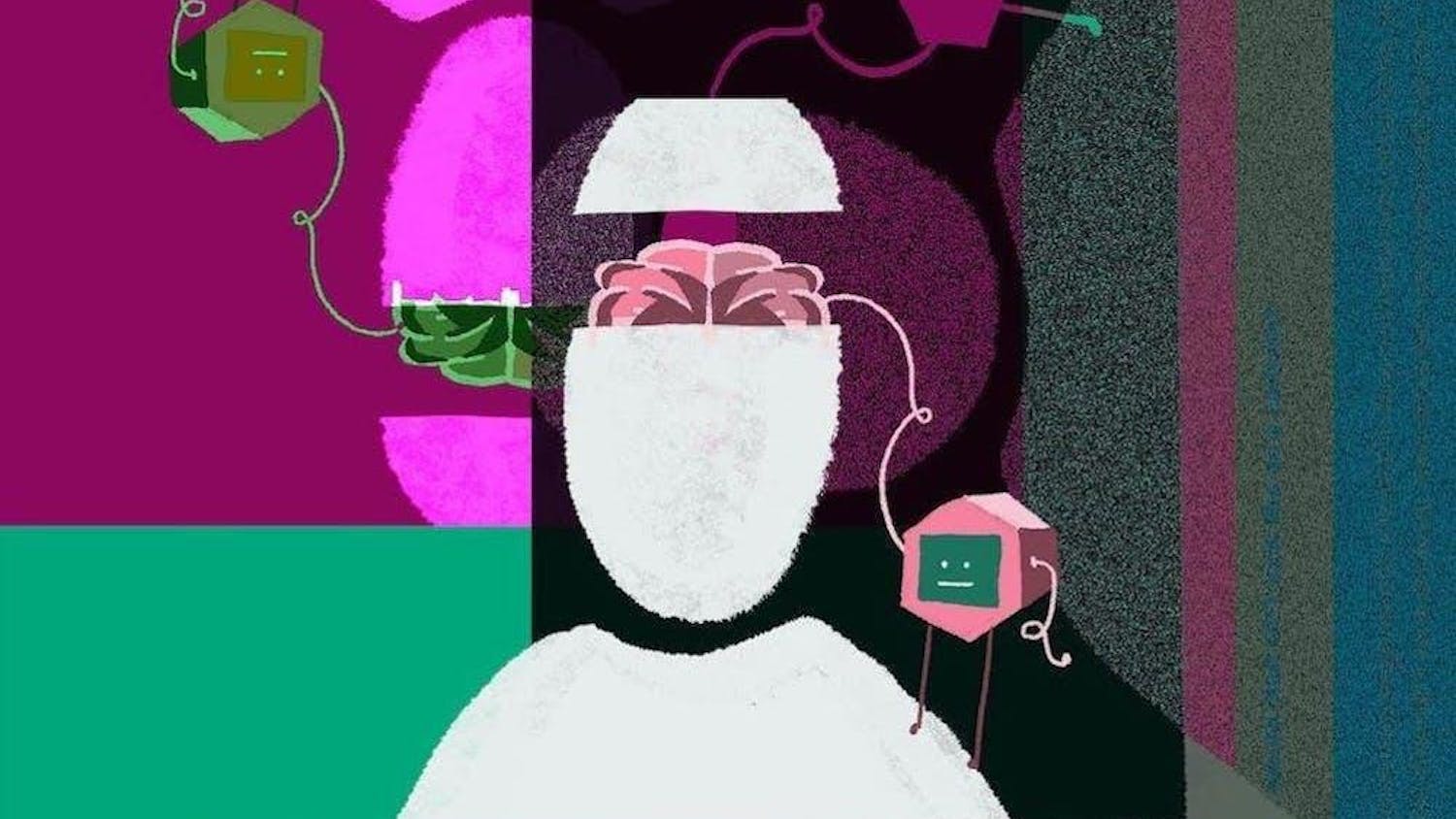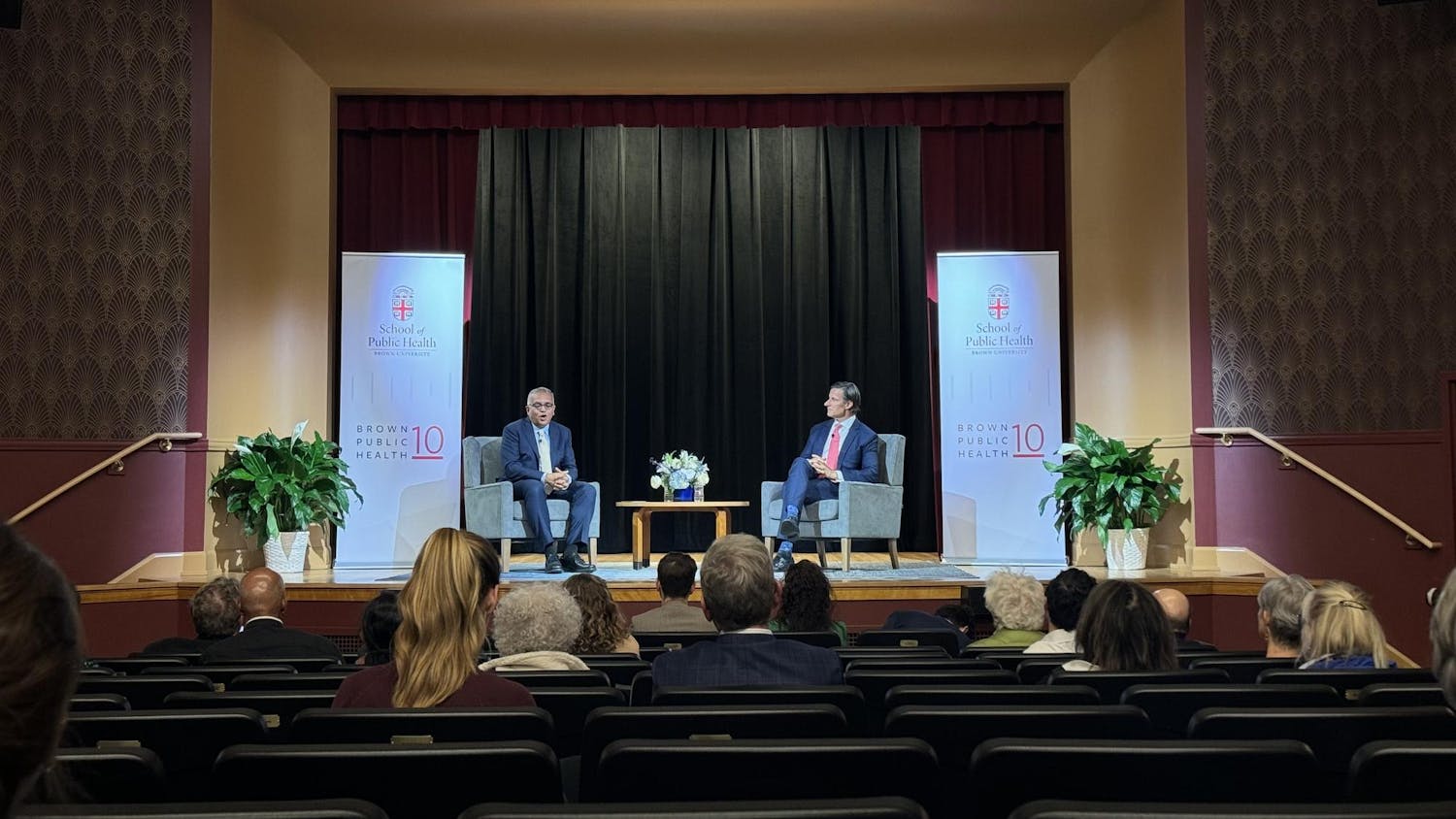With opioid and other substance abuses creating public health emergencies state- and nation-wide, the University and Rhode Island Hospital have received grants from the U.S. Substance Abuse and Mental Health Services Administration to develop and implement curricula in early substance abuse interventions, said Paul George, associate professor of family medicine.
The grants of $916,851 to the University and $788,403 to RIH will be used to teach a model known as SBIRT — screening, brief intervention and referral to treatment — to medical students at the Alpert Medical School and residents at the hospital.
“This initiative is about training the next generation’s workforce of health and behavioral health providers to address substance use more upstream in terms of early intervention,” said Joe Hyde, the technical expert lead for JBS International, a consulting firm that guides SAMHSA’s SBIRT initiatives.
The SBIRT model is in line with a national shift towards early intervention against substance abuse. “It makes no sense from a financial or humanitarian perspective to wait until horrible things happen before intervening,” Hyde added.
While treatments for alcohol and tobacco use are currently well-integrated in medical school curricula, students do not receive as much education about pain treatment, where opioid use can escalate into misuse, George said.
Rhode Island is known to have one of the highest per capita overdose rates in the country. In August, the Providence Journal reported that overdose deaths in Rhode Island had risen 73 percent since 2010.
“It’s important to realize that this data is just the apex of the pyramid,” said Michael Mello, professor of emergency medicine and director of the injury prevention center at RIH. “For every death, there are several more overdoses that come to the emergency room or get resuscitated by EMS in the field — many more that have substance use problems — so it’s really just the top of the pyramid that’s most visible.”
Any college, university or residency program in the United States was eligible to apply for the grants, and the administration received hundreds of applications, Hyde said. The University and RIH were two of the 59 applicants that were awarded the grants, he added. Brown and RIH applied for the grants separately but are working together closely to develop the curriculum.
The grants will enable the University to incorporate SBIRT into its medical curriculum starting at the end of January. First-, second- and third- year medical school students will learn how to screen patients for substance abuse or misuse through conversations about the patients’ habits. They will then put these skills into practice at medical centers and hospitals across Rhode Island, George said.
“We are asking each student to do five screenings in the first year, five in the second year and 10 at a minimum the third year. But we think they’ll do much more than that,” he said.
The fourth year of the SBIRT curriculum is taught at the RIH, where students undergo emergency medicine clinical training
During the three years for which the grant provides funding, George estimates that approximately 30,000 Rhode Island residents will be screened.
The grant will also provide training for pharmacy students at the University of Rhode Island and nursing and social work students at Rhode Island College. Once a year, the University will host an interprofessional workshop across the schools so the students can “work through case vignettes together about how to manage pain collectively as a health care team,” George said.
The effectiveness of the new curriculum will be closely monitored. In addition to exam testing throughout the program, third-year students will undergo the Objective Structured Clinical Examination, during which they will screen actors portraying patients with substance abuses and recommend necessary interventions, George said.
George and Mello expect the SBIRT curriculum to be fully established by the end of the three years and hope to see a ripple effect in the community. “You hope when our residents graduate and become physicians at medical centers across the country, they lead by example and get SBIRT integrated into the functions of wherever they are practicing,” Mello said.




